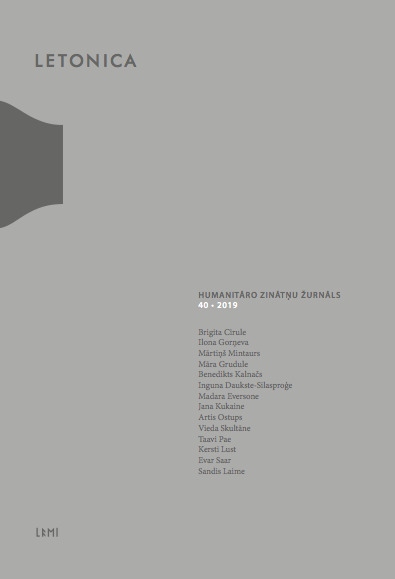Dzimumu vienlīdzības izpratne un dzimtes kārtība Padomju Savienībā
Equality and Gender Policy in the Soviet Union
Author(s): Jana KukaineSubject(s): Gender Studies, Social history, Post-War period (1950 - 1989), Politics and Identity
Published by: Latvijas Universitātes Literatūras, folkloras un mākslas institūts
Keywords: the Soviet Union; gender policy; liberation of women; working mother; crisis of masculinity;
Summary/Abstract: The article provides a historical perspective on the development of gender policy in the Soviet Union, comprising various periods and indicating shifts of ideology. It traces the development of the idea of gender equality and its influence on home, family, class and labor. It is a popular opinion that Soviet women were emancipated and had the same rights as men. The article challenges the legitimacy of this assumption by providing an overview on the construction of Soviet womanhood. The propaganda of motherhood and the never-ending call to build communism were two main components, which in fact showed little interest in improving the lives of ordinary women and eradicating discrimination. Therefore, while officially the ‘women’s question’ was declared as solved, double and even triple workload became part of the Soviet women’s everyday life. The overall situation can be characterized as a transition from classical patriarchy (women being ruled by fathers and husbands) to socialist patriarchy (women being ruled by the Communist Party and the State). While the benefits of this passage for women are questionable, the obvious losers turned out to be Soviet men whose traditional role as the head of the family was greatly undermined. Therefore the crisis of masculinity took place as early as the 1960s, urging Soviet sociologists and ideologists to come up with a program to ‘save the men’. One of the effects of the program was a call to restrict the malignant women’s liberation in order to restore the traditional femininity, which was then supposed to take care of men. After the collapse of the Soviet Union, the post-Soviet societies (Latvia being among them) are still affected by Soviet propaganda and gender policy, which explains – at least to some extent – the prevailing reluctance and skepticism towards feminism and the idea of gender equality in these countries.
Journal: Letonica
- Issue Year: 2019
- Issue No: 40
- Page Range: 97-115
- Page Count: 19
- Language: Latvian

